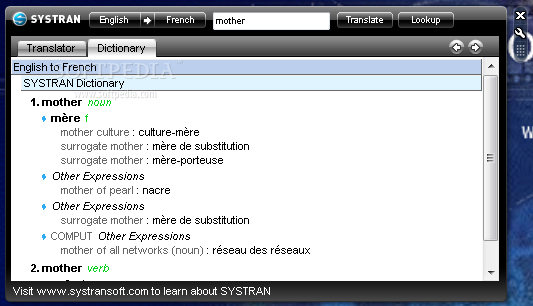

The poet Horace also used obscenities in his early poems, that is the Epodes and the first book of Satires, but later writers of satire such as Juvenal and Persius avoided the coarser words even when discussing obscene topics. These words are strictly avoided in most types of Latin literature however, they are common in graffiti, and also in certain genres of poetry, such as the short poems known as epigrams, such as those written by Catullus and Martial. There thus appear to have been various degrees of obscenity in Latin, with words for anything to do with sex in the most obscene category.

He does not object to using the word ānus, and says that pēnis, which in his day was obscene, was formerly just a euphemism meaning "tail".

He also objects to words which mean "to fuck", as well as to the Latin word bīnī "two" because for bilingual speakers it sounds like the Greek βινεῖ ( bineî) ("he fucks or sodomises" ), and also to two words for passing wind, vīssiō and pēdō. The words which he alludes to but avoids are: cūlus ("arsehole"), mentula ("penis"), cunnus ("cunt"), landīca ("clitoris"), and cōleī ("testicles"). In the letter Cicero alludes to a number of obscene words, without actually mentioning them. Cicero praises him for his forthrightness, which he says conforms to the teachings of the Stoic philosophers, but says that he himself prefers modesty ( verēcundia). It appears that the friend, Lucius Papirius Paetus, (whose letters to Cicero have not been preserved) had used the word mentula ("penis") in one of his letters. In a letter to one of his friends, written about 45 BC, Cicero discusses a number of obscenities in Latin. Latin taboo words Cicero's letter ad Fam. 17 Latin words relating to prostitution.15.6 In the Romance languages and English.Medical, especially veterinary, texts also use certain anatomical words that, outside of their technical context, might have been considered obscene. However, the satirists Persius and Juvenal, although often describing obscene acts, did so without mentioning the obscene words. The earlier poems of Horace also contained some obscenities. Another source is the anonymous Priapeia (see External links below), a collection of 95 epigrams supposedly written to adorn statues of the fertility god Priapus, whose wooden image was customarily set up to protect orchards against thieves. 9.22) to a friend called Paetus, in which he alludes to a number of obscene words without actually naming them.Īpart from graffiti, the writers who used obscene words most were Catullus and Martial in their shorter poems. Documented obscenities occurred rarely in classical Latin literature, limited to certain types of writing such as epigrams, but they are commonly used in the graffiti written on the walls of Pompeii and Herculaneum.Īmong the documents of interest in this area is a letter written by Cicero in 45 BC ( ad Fam. Words deemed obscene were described as obsc(a)ena (obscene, lewd, unfit for public use), or improba (improper, in poor taste, undignified).

Bomtoon english.Latin obscenity is the profane, indecent, or impolite vocabulary of Latin, and its uses.


 0 kommentar(er)
0 kommentar(er)
